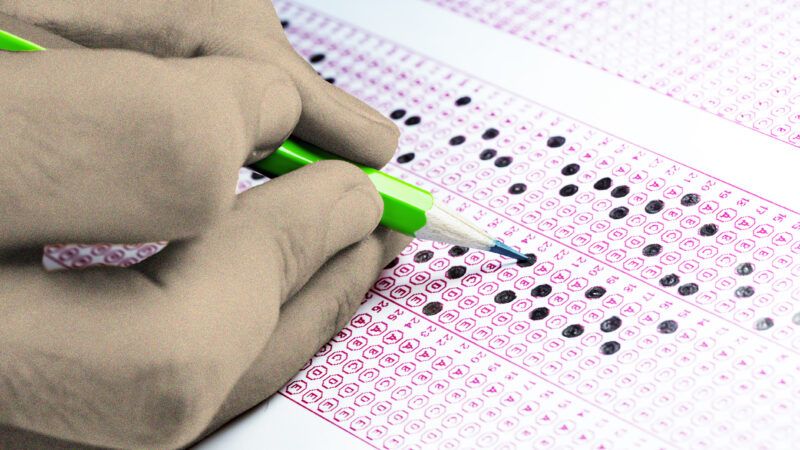ACT Scores Are Down. Grades Are Up. Something's Fishy.
Grade inflation is making test-optional college admissions unworkable.

High school students' grades keep getting better, but standardized tests tell a different story. According to new research, while grade inflation is continuing to drive high school grades up, students are slipping on more objective measures of learning. As more and more colleges are turning away from a recent shift towards test-optional admissions, this data indicates that asking students for their standardized test scores is increasingly necessary to gauge learning.
Last month, the ACT released research indicating that student GPA in the post-COVID-19 era has declined in its power to predict student success in college. In contrast, standardized test scores stayed relatively stable in their ability to predict whether students will receive passing grades in their first year of college.
According to researchers, the average high school GPA, measured on a 4.0 scale, has risen slightly since 2017, increasing from 3.44 to 3.59. While ACT scores stayed fairly stable from the mid-90s to 2019, they faltered during and after the pandemic, declining from 20.7 on a 36-point scale in 2019 to 19.5 in 2023. The decline was particularly steep between 2021 and 2022, falling from 20.3 to 19.8. While these drops seem small, they portend a significant problem.
"When we're talking about over a million students, then seeing a half-point drop in one year is a big decline….We haven't seen a change like that in the last 10 years or even in the last 30 years," Rose Babington, senior director for state partnerships at ACT, told Reason in 2022.
"For colleges, these findings indicate that using high school grade point average without a confirming alternative measure of achievement may lead them to fail to identify students who may need additional supports," the study reads. "These findings suggest that colleges should encourage students to submit their ACT scores so that colleges can better assess the potential success of students."
Another research paper, published earlier this year paints a similar picture. The study, from the Equitable Grading Project, looked at more than 30,000 grades from the 2021-2022 and 2022-2023 school years. When compared to students' performance on corresponding standardized tests, researchers found that almost 60 percent of grades "did not match the standardized test scores designed to measure students' content knowledge of those courses." Two-thirds of these mismatched grades were inflated, an outcome that affected low-income, black, and Hispanic students most.
These results indicate that grade inflation is rampant, and colleges should turn back toward standardized testing in admissions if they want to reliably predict which student will be able to handle the rigors of college.
For now, more and more colleges are making this shift within the past year. Some of America's most influential and selective colleges—such as Brown, Dartmouth, Harvard, Yale, Georgetown, MIT, and Caltech—have reinstated standardized testing requirements. However, the heavy majority of U.S. colleges and universities are still test-optional, or even test-free, with more than 2,000 out of around 2,600 institutions ditching standardized tests.


Show Comments (42)